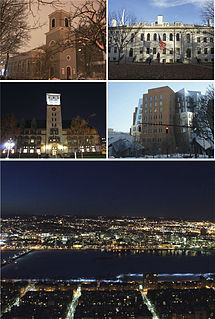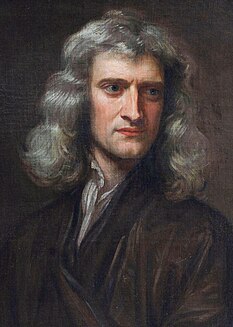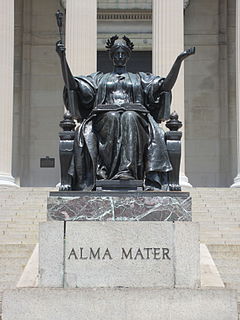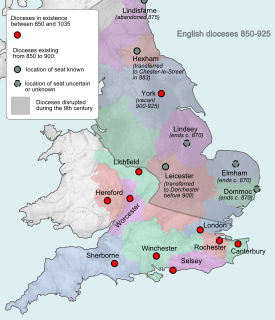
Cambridge is a city in Middlesex County, Massachusetts, and part of the Boston metropolitan area.

Cambridgeshire is a county in the East of England, bordering Lincolnshire to the north, Norfolk to the north-east, Suffolk to the east, Essex and Hertfordshire to the south, and Bedfordshire and Northamptonshire to the west. The city of Cambridge is the county town. Modern Cambridgeshire was formed in 1974 as an amalgamation of the counties of Cambridgeshire and Isle of Ely and Huntingdon and Peterborough, the former covering the historic county of Cambridgeshire and the latter covering the historic county of Huntingdonshire and the Soke of Peterborough, historically part of Northamptonshire. It contains most of the region known as Silicon Fen.

Sir Isaac Newton was an English mathematician, physicist, astronomer, theologian, and author who is widely recognised as one of the most influential scientists of all time, and a key figure in the scientific revolution. His book Philosophiæ Naturalis Principia Mathematica, first published in 1687, laid the foundations of classical mechanics. Newton also made seminal contributions to optics, and shares credit with Gottfried Wilhelm Leibniz for developing the infinitesimal calculus.

Macbeth is a tragedy by William Shakespeare; it is thought to have been first performed in 1606. It dramatises the damaging physical and psychological effects of political ambition on those who seek power for its own sake. Of all the plays that Shakespeare wrote during the reign of James I, who was patron of Shakespeare's acting company, Macbeth most clearly reflects the playwright's relationship with his sovereign. It was first published in the Folio of 1623, possibly from a prompt book, and is Shakespeare's shortest tragedy.

William Shakespeare was an English poet, playwright and actor, widely regarded as the greatest writer in the English language and the world's greatest dramatist. He is often called England's national poet and the "Bard of Avon". His extant works, including collaborations, consist of approximately 39 plays, 154 sonnets, two long narrative poems, and a few other verses, some of uncertain authorship. His plays have been translated into every major living language and are performed more often than those of any other playwright.

Cambridge is a university city and the county town of Cambridgeshire, England, on the River Cam approximately 50 miles (80 km) north of London. At the United Kingdom Census 2011, its population was 123,867 including 24,506 students. Cambridge became an important trading centre during the Roman and Viking ages, and there is archaeological evidence of settlement in the area as early as the Bronze Age. The first town charters were granted in the 12th century, although modern city status was not officially conferred until 1951.
Cambridge University Press (CUP) is the publishing business of the University of Cambridge. Granted letters patent by King Henry VIII in 1534, it is the world's oldest publishing house and the second-largest university press in the world. It also holds letters patent as the Queen's Printer.

King's College is a constituent college of the University of Cambridge in Cambridge, England. Formally The King's College of Our Lady and Saint Nicholas in Cambridge, the college lies beside the River Cam and faces out onto King's Parade in the centre of the city.

Alma mater is an allegorical Latin phrase for a university, school, or college that one formerly attended. The phrase is variously translated as "nourishing mother", "nursing mother", or "fostering mother", suggesting that a school provides intellectual nourishment to its students. Fine arts will often depict educational institutions using a robed woman as a visual metaphor.
The terms alien abduction or abduction phenomenon describe "subjectively real memories of being taken secretly unwillingly by apparently unhuman figures (aliens) and subjected to complex physical and psychological procedures". People claiming to have been abducted are usually called "abductees" or "experiencers". Typical claims involve being subjected to forced medical examinations that emphasize abductee reproductive systems. Abductees sometimes claim to have been warned against environmental abuse and the dangers of nuclear weapons.

The Buyid dynasty or the Buyids, also known as Buwaihids, Bowayhids, Buyahids, or Buyyids, was a Shia Iranian dynasty of Daylamite origin. Coupled with the rise of other Iranian dynasties in the region, the approximate century of Buyid rule represents the period in Iranian history sometimes called the 'Iranian Intermezzo' since, after the Muslim conquest of Persia, it was an interlude between the rule of the Abbasid Caliphate and the Seljuk Empire.
Cambridge Assessment International Education is a provider of international qualifications, offering examinations and qualifications to 10,000 schools in more than 160 countries.
In the universities of Oxford, Cambridge, and Dublin, Bachelors of Arts with Honours of these universities are promoted to the title of Master of Arts or Master in Arts (MA) on application after six or seven years' seniority as members of the university. As such, it is an academic rank, and not a postgraduate qualification. No further examination or study is required for this promotion.

The Great Northern Route is the name given to suburban rail services run on the southern end of Britain's East Coast Main Line and its associated branches. Services operate to or from London King's Cross and Moorgate in London. Destinations include Hertford North, Welwyn Garden City, Stevenage, Peterborough, Cambridge and King's Lynn. Services run through parts of Greater London, Hertfordshire, Bedfordshire, Cambridgeshire and Norfolk.

The Field Elm cultivar Ulmus minor 'Hunnybunii' was originally identified as U. nitens var. HunnybuniiMoss by Moss in The Cambridge British Flora (1914). 'Hunnybunii' was reputed to have been commonly planted in the parklands and hedgerows of Essex, Cambridgeshire, and Huntingdonshire before the advent of Dutch elm disease. Melville considered the tree a hybrid of 'Coritana'.

English is a West Germanic language that was first spoken in early medieval England and eventually became a global lingua franca. Named after the Angles, one of the Germanic tribes that migrated to the area of Great Britain that would later take their name, England, both names ultimately deriving from the Anglia peninsula in the Baltic Sea. It is closely related to Frisian and Low Saxon, and its vocabulary has been significantly influenced by other Germanic languages, particularly Norse, and to a greater extent Latin and French.

Tidfrith or Tidferth was an early 9th-century Northumbrian prelate. Said to have died on his way to Rome, he is the last known Anglo-Saxon bishop of Hexham. This bishopric, like the bishopric of Whithorn, probably ceased to exist, and was probably taken over by the authority of the bishopric of Lindisfarne. A runic inscription on a standing cross found in the cemetery of the church of Monkwearmouth is thought to bear his name.

The University of Cambridge is a collegiate public research university in Cambridge, United Kingdom. Founded in 1209 and granted a Royal Charter by King Henry III in 1231, Cambridge is the second-oldest university in the English-speaking world and the world's fourth-oldest surviving university. The university grew out of an association of scholars who left the University of Oxford after a dispute with the townspeople. The two 'ancient universities' share many common features and are often referred to jointly as 'Oxbridge'. The history and influence of the University of Cambridge has made it one of the most prestigious universities in the world.














